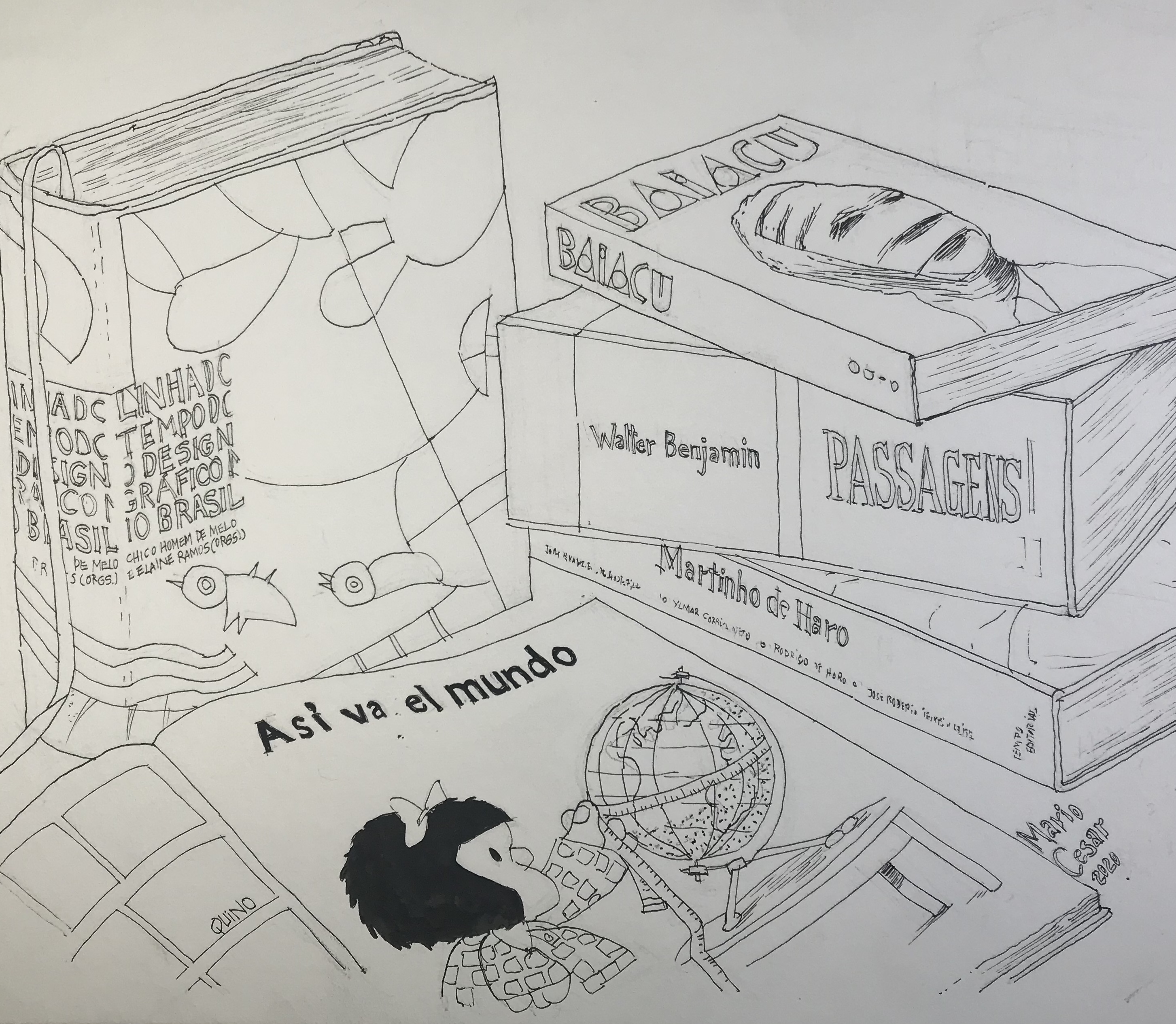A LITERATURA DISTÓPICA INFANTO-JUVENIL COMO UM ESPAÇO PARA DISCUSSÕES FORA DO ESPAÇO ACADÊMICO:
UM ENSAIO SOBRE A CRISE DAS HUMANIDADES E O PAPEL DO GÊNERO LITERÁRIO DISTÓPICO NO BRASIL
Keywords:
distopia, literatura distópica, humanidades, governo BolsonaroAbstract
With the rise of Bolsonaro's government, it became evident that the humanities are facing a period of great devaluation. Understood by many as useless and / or hard studies, the humanities seem to lose their space in the face of technical studies both in the academic area and outside of it. On the other hand, it is observed that discussions about political, social and cultural issues remain present in other medias, with the one addressed in this article, the young-adult dystopian literature. Based on the discussion by Marjorie Perloff (2015) about the crisis of the humanities in an American perspective, an analysis is proposed about the influence of young-adult dystopian literature in Brazil for the permanence of humanistic debates in non-academic spaces, as a way of reinvent the modes of discussion from a literary perspective. To this end, the influence on the current government to devalue this studies will be discussed, as well as the other means of making these discussions possible in less elite spaces, using authors who deal with the dystopian genre, mainly Clayes (2010), as well as sources that allow to observe the rise of gender in the country. It is concluded that dystopian literature for young-adults has an important role in the formation of new Brazilian readers.
Downloads
References
BRADBURY, Ray. Fahrenheit 451. São Paulo, Globo, 2007. Tradução: Cid Knipel.
BRASIL. GOVERNO FEDERAL. Discurso do Presidente da República Jair Bolsonaro na abertura da 75ª Assembleia Geral da Organização das Nações Unidas. Disponível em: <https://www.gov.br/planalto/pt-br/acompanhe-o-planalto/discursos/2020/discurso-do-presidente-da-republica-jair-bolsonaro-na-abertura-da-75a-assembleia-geral-da-organizacao-das-nacoes-unidas-onu>. Acesso em 24 de set. de 2020.
BRASIL. CNPQ – [Conselho Nacional de Desenvolvimento Científico e Tecnológico]. Edital Nº 09/2020 - Bolsas de Produtividade em Pesquisa. Disponível em: <http://cnpq.br/chamadaspublicas?p_p_id=resultadosportlet_WAR_resultadoscnpqportlet_INSTANCE_0ZaM&idDivulgacao=9623&filtro=encerradas&detalha=chamadaDetalhada&id=58-107-6827&fbclid=IwAR2ZshVHS-j-OnKj csTbNvTCR7l4viKt4t8R8F5_TTB-XT5H3RvRDa3BZ0>. Acesso em: 13 de set. de 2020.
CERQUEIRA, Juliana Radosavac Figueiredo. Adolescência sombria: das distopias às distopias infanto-juvenis. In: KRETSCHMER, Johannes; SOARES, Marcus Vinícius Nogueira; MELLO, Maria Elizabeth Chaves de (Orgs.). Caderno de Programação – XV Congresso Internacional da ABRALIC – Textualidades Contemporâneas. Rio de Janeiro: Dialogarts, 2018, p. 4921 – 4928.
CLAEYS, Gregory. The origins of dystopia: Wells, Huxley and Orwell. CLAEYS, Gregory (Ed.). The Cambridge companion to Utopian Literature. Cambridge: Cambridge University Press, 2010, p. 107 – 134.
COLLINS, Suzanne. Jogos Vorazes. 1. ed. Rio de Janeiro: Rocco, 2010, 397p. Tradução: Alexandre D’Elia.
COLLINS, Suzanne. Em Chamas. 1. ed. Rio de Janeiro: Rocco, 2011, 413p. Tradução: Alexandre D’Elia.
COLLINS, Suzanne. A Esperança. 1. ed. Rio de Janeiro: Rocco, 2011, 421p. Tradução: Alexandre D’Elia.
HUXLEY, Aldous. Admirável mundo novo. São Paulo: Globo, 2008.
GEISLER, Luisa; FERRONI, Marcelo; POLESSO, Natalia Borges; DE MACHADO, Samir Machado. Corpos Secos. Porto Alegre: Alfaguara, 2020, 192 p.
ORWELL, George. 1984. 1. ed. São Paulo: Companhia das Letras, 2009, 414p.
Tradução: Alexandre Hubner, Heloisa Jahn.
PERLOFF, Marjorie. Crisis in the humanities? reconfiguring literary study for the twenty-first century. In: PATAI, Daphne; CORRAL, Will H. Theory’s Empire: An Anthology of Dissent. New York: Columbia University Press, 2005, p. 668 – 683.
ROTH, Veronica. Divergente. Rio de Janeiro: Rocco Jovens Leitores, 2012 [2011].
ROTH, Veronica. Insurgente. Rio de Janeiro: Rocco Jovens Leitores, 2013 [2012].
ROTH, Veronica. Convergente. Rio de Janeiro: Rocco Jovens Leitores, 2014 [2013].
TIBURI, Márcia. Sob os pés, meu corpo inteiro. São Paulo: Editora Record, 2018, 181 p.
VALENTE, Thiago Alves. Utopia, distopia e realidade: um novo verismo na literatura para jovens. Letras de Hoje, Porto Alegre, v. 45, n. 3, p. 70-74, jul./set. 2010.
VEJA. O mundo cruel e rentável da distopia infanto-juvenil. Publicado em: 10 de novembro de 2013. Disponível em: <https://veja.abril.com.br/cultura/o-mundo-cruel-e-rentavel-da-distopia-infantojuvenil/>. Acesso em: 12 de out. de 2020.
VIEIRA, Fátima. The concepto f utopia. CLAEYS, Gregory (Ed.). The Cambridge companion to Utopian Literature. New York. Cambridge: Cambridge University Press, 2010, p. 03 - 27.
WESTERFELD, Scott. Feios. São Paulo: Galera Record, 2010.
WESTERFELD, Scott. Perfeitos. São Paulo: Galera Record, 2010.
WESTERFELD, Scott. Especiais. São Paulo: Galera Record, 2010.
WESTERFELD, Scott. Extras. São Paulo: Galera Record, 2010.
Downloads
Published
How to Cite
Issue
Section
License
The Copyright for articles published in this magazine belongs to the author, preserving the rights of first publication for the Communitas Magazine. Because they appear in this publicly accessible journal, the articles are free to use, with their own attributions, in educational and non-commercial applications.
























